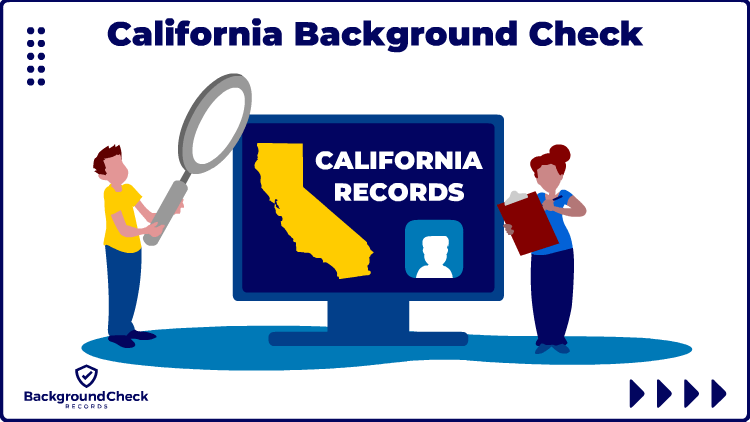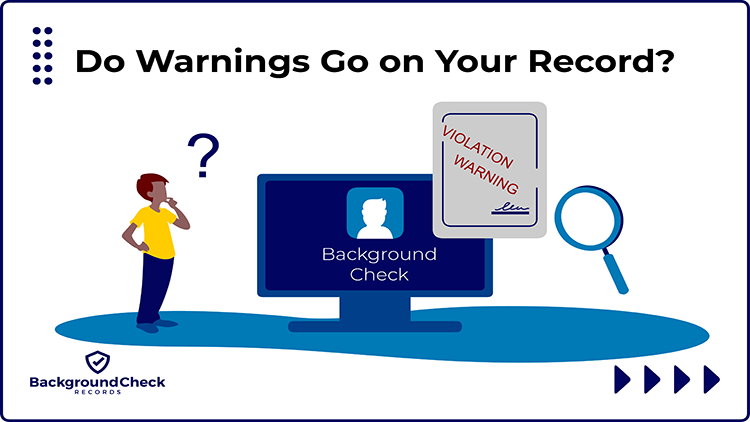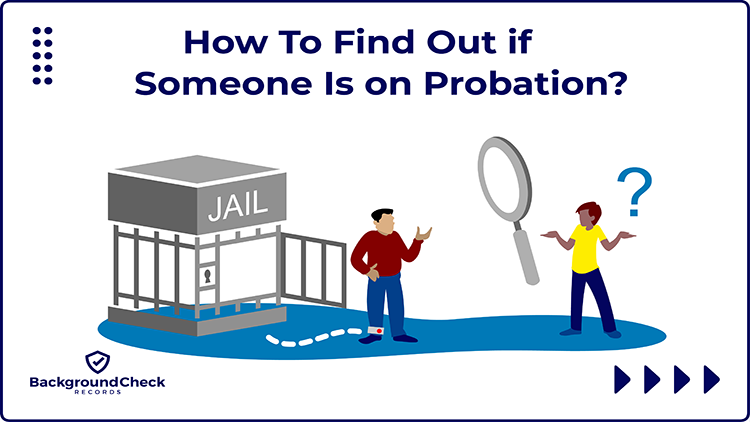California Background Check: 2023 Guide (New Law), Free Search
A California background check offers a glimpse into an individual’s history, and this 2023 guide demonstrates how to conduct one using the different government agencies and databases, depending on the purpose of the screening.
While most of these state agencies charge a nominal fee to view records, a free search can be done by entering in anyone’s name in the form here to find records on their criminal history, marital status, whether or not they have a warrant out for their arrest, and more.
For those who are want to check official resources, this guide covers:
- Accessing criminal records through state and federal court records in California
- Obtaining criminal history information through the California Department of Justice
- Everything you need to know about California employment background checks
- The process on California firearm background checks
- How to get criminal history information through local police departments and county sheriff’s offices
- The best way to find inmates in a California state prison
- Background check information for professional licensing, child care, and other professions that are monitored by the California Department of Consumer Affairs
- Driving infractions and records via the California DMV
- And more…
So no matter the reason, we’ll show you how to find the information you’re seeking in addition what shows up on these checks, disqualifying offenses, how far back the background checks go, how long the screening process takes, and lastly, new CA background check laws that are beginning to limit what information can be shown to the public.
Access Free Public Criminal Records in California With a California Background Check
Individuals can reach out to official government agencies to conduct a free, or low cost) personal record check, but screenings for professional purposes must go through compliant state agencies to meet legal requirements per state and federal background check laws.
In addition, there’s various state agencies that offer background checks and the one that should be used depends the purpose of the screening. For this reason, we’ll cover each agency and database so anyone can get a background check done on themselves, or someone else.
Note, some agencies or public records can be checked online, while others require an in-person visit or application to be sent via mail.
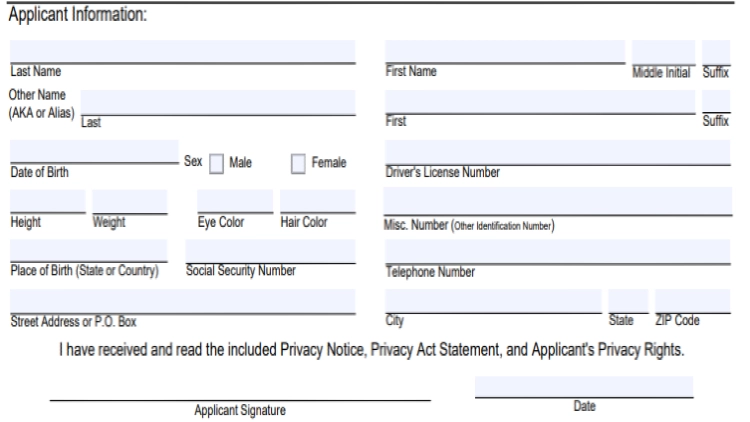
Search California Federal Criminal History Through PACER
California federal court information can be located through PACER (Public Access to Court Electronic Records) maintained by the federal government. When someone has been tried and convicted of a federal crime, the record is uploaded in the PACER system.
Searches can be done based on the specific court the hearing was held, the national index of federal cases, opinions handed down by federal judges, or via telephone access to make the request.
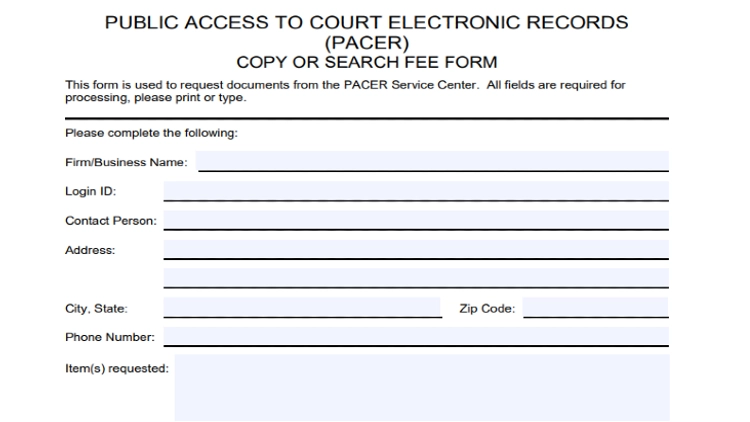
Records include those through federal appellate courts, district courts and bankruptcy hearings. There is a nominal fee for accessing PACER, including a cost of $.10 per page (with a maximum allowable charge of $3) or $2.40 per audio file.1
Locate Free California Criminal Records Through The Department of Justice
The California Department of Justice is where an individual can obtain an official state criminal record report for housing, employment, licensure or personal use. State law limits release of records to the individual subject of the record or law enforcement or authorized governmental agencies upon request.
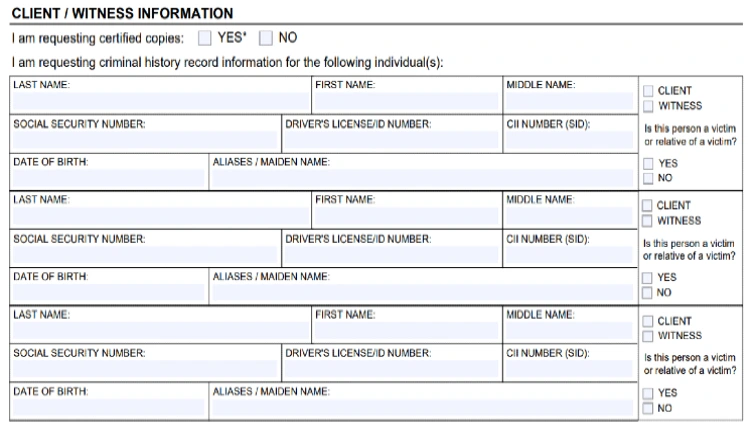
Individuals can request a copy of their California criminal history by submitting a $25 fee along with fingerprints and this form to the address below:
California Dept. of Justice – Bureau of Criminal ID & Analysis
Record Review and Challenge Section
Post Office Box 160207
Sacramento, California 95816-0207
Those living in California at the time of the request must get their fingerprints taken via Live Scan through the local law enforcement agency, sheriff’s department or Live Scan site, but those living outside California must include a manual fingerprint card along with the $25 fee and request for records.
Find California Civil and Criminal Records Through The State Courts
Another great source of public records in California is the state court system. The court system offers three ways a person can look up court records. Individuals can request records in person through the clerk of court’s office using one of the public terminals available for electronic records, or by asking to review a paper copy of the document.
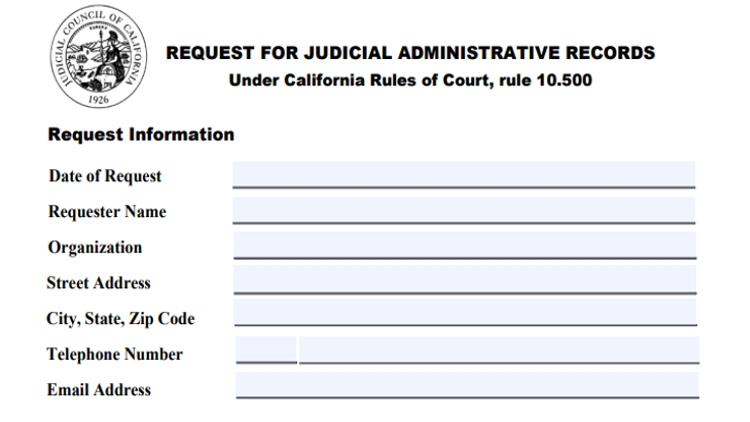
Records can also be accessed via remote access if the particular court that generated the record offers this service. Courts that maintain electronic records must strive to provide remote access to the electronic files accessible to the public.
This remote access is for certain types of cases only. The following records cannot be accessed via remote means and must be viewed at the courthouse that generated the record:
- Divorce
- Child Custody
- Civil Harassment
- Criminal Cases
Each courthouse publishes a list of the type cases that must be viewed at the courthouse and cannot be accessed via remote means.2
Juvenile cases are closed matters and are not accessible to the public. These matters can only be accessed by those with a need to know basis such as court personnel, attorneys or governmental agencies.
Access California Criminal Records Through Local Law Police Department or Sheriff’s Office
Local law enforcement agencies such as police departments or sheriff’s offices maintain records of police interactions with the public. Each call into the agency is logged with a brief explanation of the call. When officers or deputies are dispatched to a call, a report is generated.
Additionally, many sheriff’s offices also maintain the local jail, some of which publish a list of current inmates. This list may contain details of the person’s incarceration such as charges, date of arrest, and bond amount.
There are 66 jails operating in California, some of which allow online searches of current inmates, but not every department provides the same level of information.
For example, individuals can search Sacramento County Sheriff’s Department Detention Facility to see if someone is being housed at this facility through its online portal. The information provided only shows the name and date the person was released from jail if they are no longer housed there.3
The Los Angeles County Sheriff’s Office also has an online search portal for locating inmates housed in that area. This search shows the inmate’s name, gender, race, date of birth and age. The searcher can also click the booking number to get more details such as charge level (misdemeanor or felony), bail information and exact location in the jail.4
Search Prisoner Records Through the California Department of Corrections
If someone wants to learn more about a person who is incarcerated in the California Department of Corrections, they can access the online search portal and search by individual’s name or the person’s CDCR number. Name searches can return multiple hits if it is a common name.
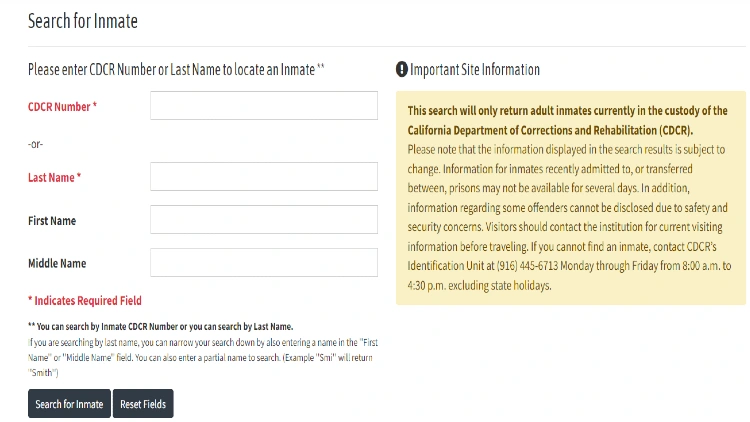
A California Department of Corrections search provides information such as the inmate’s name, CDCR number, age, admission date to the prison facility, current location of incarceration, directions to the facility, and parole eligibility date. If probation is supervised, it will appear on a CDCR check, but whether probation shows up on a background check is the question.
Searchers can also click on the link to the Board of Parole Hearing notes to see if the person has been previously eligible for parole and the outcome of those hearings. This link shows if the individual was deemed a violent or non-violent offender.5
Check CA Sex Offender Records Through The National Sex Offender Registry or the California Sex Offender Registry
Convicted sex offenders are required to register with the sheriff’s office where they live, and each state maintains a centralized registry that is accessible to the public. Someone looking for information on a convicted sex offender in California can search the state registry located on the California Megan’s Law Website.
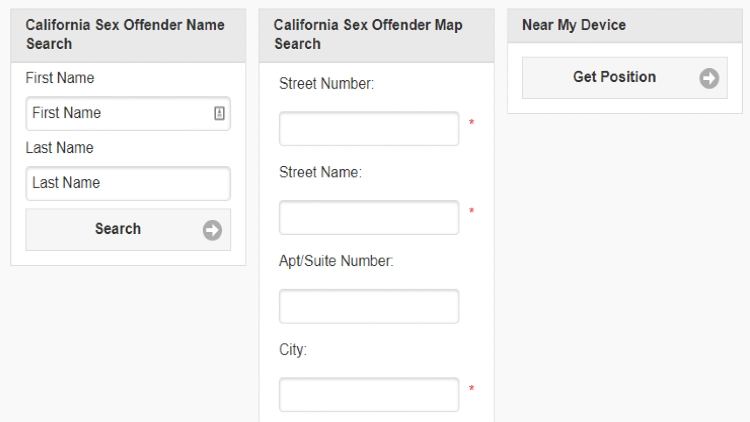
Searches on the state registry can be by offender name, geographic location, or by activating location services on the searcher’s device and clicking “Get Position.” Information available on a search includes a photo of the offender, aliases, physical description of the person, offense, risk factors, last known location and any scars, marks, tattoos or other identifiers. The search results will also show if the person is in violation.
Individuals can also search for California sex offenders through the Dru Sjodin National Sex Offender Registry. National Sex Offender Registry searches can be by name or location. The national registry is helpful if someone wants to search for a person who was convicted in California but may have moved to another state and is registered in the new location.
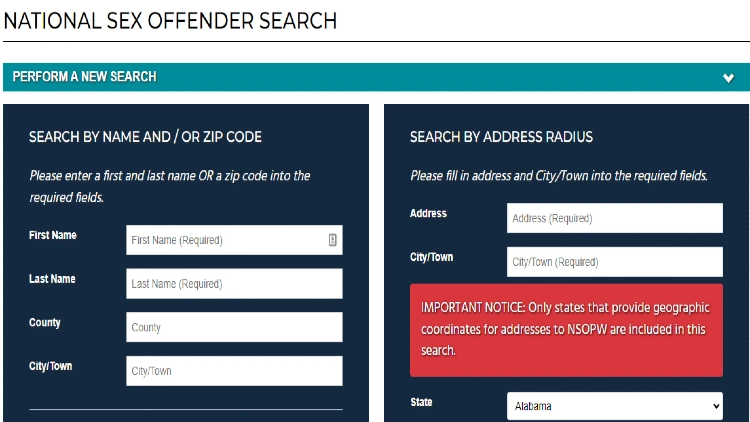
Individuals may also get limited information regarding criminal history from state licensing boards, but only if a person’s license was suspended or revoked based on criminal activity. County registrars and recorders are also sources of information on where individuals live or other vital records. The Department of Motor Vehicles also provides limited information on California drivers.
Marriage Background Check CA: How To Check if Someone Is Married or Divorced in California
The California Department of Public Health (CDPH), Vital Records Division, maintains records of all marriages and divorces in the state. Vital Records only provides information on public marriages within the state. Private marriage records are not accessible through CDPH. Certified copies of marriage records can be obtained online or in person.
California uses VitalChek, State Vital Records, or Vital Records Online to process electronic requests for marriage records. These third-party sites are the only ones approved through the state for official copies of these vital records. Individuals who are not eligible for a certified copy can still get an informational certificate as proof someone was married in California.
Individuals can also request the record in person by going to the office of the county recorder in the county the marriage took place. This is sometimes a quicker, more efficient method than online requests. The fee for a copy of the marriage certificate is $17.
Divorce records can be obtained via mailing a request to the Vital Records Division along with a check or money order for $16 to cover the fees. Requests can be mailed to CDPH, Vital Records/MS 5103, Post Office Box 997410, Sacramento, California 95899-7410. If CDPH does not have the record, the individual can request records from the Clerk of Superior Court in the county where the divorce was filed and entered.
The reasons background checks are used in California range from employment screenings to tenant checks and personal uses. Each type of check requires a different amount of data, but all are still subject to the state and federal laws that regular background checks.
Reasons Background Checks Are Used In California
Background checks in California are performed for a variety of reasons. Other than just personal record screenings, a criminal or credit history report may be completed for the following:
- Employment screenings are the primary reason for an official background check in California. Pre-screenings or continuous screenings help businesses hire and maintain the best employees for the company or agency. While not every business or agency conducts a deep-dive into a person’s background, the following industries will run a more comprehensive screening:
- Licensure applicants
- Positions involving public health or safety
- Executive positions (c-suite careers)
- Working with vulnerable populations such as disabled adults, elder care, or working with children.
- Renting or Leasing a home
- Purchasing/possessing a firearm or ammunition
- Screening volunteers for non-profit organizations or public agencies that utilize volunteers.
Agencies and businesses differ in the type of background screening they conduct. While the standard is a level 2 background check, which includes fingerprint verification, some businesses require a level 3 background check that can include employment and education verification, in addition to criminal and credit history. Level 1 background checks reveal the least amount of information and are most often used in personal criminal record checks.
Free Criminal Background Check: California Criminal History Search
Conducting an official/professional background check on an employee candidate or potential renter requires certain laws and regulations be followed to make sure the search is in compliance and can be legally applied to the decision making process.
Federal laws that regulate what an employer, agency or potential landlord can check include the Fair Credit Reporting Act which limits credit history to seven years, and Title VII of the Civil Rights Act of 1964 which prohibits using background check information in a discriminatory manner when making hiring or rental decisions.
Criminal histories in California are performed by the California Department of Justice to include both name-based and fingerprint-based screenings. This is the point of contact for both state and national background checks.
The table below outlines which agencies perform or require background checks along with a brief explanation of why a screening is required.
| Agency Performing or Requiring Background Checks |
Brief explanation of why screening may be conducted. |
| California Department of Justice |
- Employment screening
- Licensing
- Health and Safety
- Working with vulnerable populations
|
| Department of Social Services |
- Community care workers
- Volunteers
- Child care workers
- Adult protective services workers
- Social workers
|
| California Department of Real Estate |
|
| Department of Consumer Affairs |
- Accountants
- Acupuncturists
- Certified arbitrators
- Architects
- Athletic Commission members
- Automotive repair workers
- Barbers and Cosmetologists
- Behavioral Science workers
- Cemetery and funeral workers
- Chiropractors
- Contractors
- Court reporters
- Dentists and dental hygienists
- Engineers
- Land surveyors
- Geologists
- Landscapers
- Occupational therapists
- Optometrists
- Pharmacists and pharmacy technicians
- Physical therapists
- Podiatrists
- Educators
- Professional fiduciaries
- Security Officers
- Speech and language pathologists
- Respiratory care providers
- Veterinarians
- Pest Control
|
| California Medical Board |
- Medical and surgical personnel
- Osteopathic medicine
- Naturopathic medicine
- Nurses
- Nurse Aides
- Genetic Counselors
- Vocational nurses
- Pediatricians
|
The reasons for requesting a background check in California are as varied as the types of business and positions available. Local, state and federal agencies perform these checks to make sure the person being considered is the best fit for the job, license or other activities that require a screening.
Firearms Background Checks by FBI and California Department of Justice
There are two different kinds of firearms background checks in California: one to purchase and one to possess a firearm. Proposition 63 requires the California Department of Justice be the screening agency for purchase permits in the state for both firearms and ammunition. Individuals are required to renew their permit every four years under this law. DOJ searches look at state records in addition to the federal NICS check required under federal law.
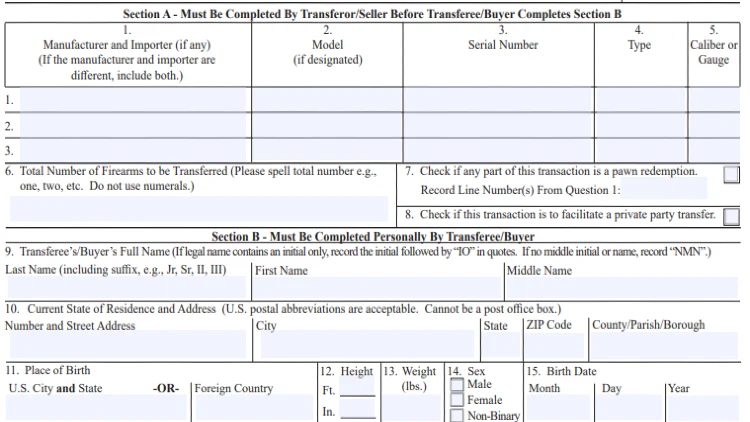
Private sales and transfers of firearms are prohibited in California under Assembly Bill 1621, meaning all firearms transfers or sales must be preceded by a background check to make sure the person has a legal right to purchase or possess a weapon.
California also can perform a Personal Firearms Eligibility Check (PFEC) upon request by an individual under Penal Code 30105. This check can be requested by the subject of the search to see if anything comes back on a background check that would prevent them from owning a firearm. An application, along with $20, must be submitted to the DOJ in order for the search to be conducted. If a person is deemed ineligible, they will be required to surrender any firearms in their possession.
Employment Background Checks by California Department of Justice
California has a number of laws that affect how employment background checks can be conducted and how the information reported can be used when making hiring decisions. Background checks are conducted through the California Department of Justice to make sure they are in compliance with state and federal laws.
The table below lists the applicable laws in California and how they apply to employment background checks.
| Applicable Law |
Brief Explanation |
| Fair Credit Reporting Act (FCRA) |
Federal law that limits searching credit history to a seven year lookback period as well as criminal history for positions that pay over $75,000 a year. FCRA also outlines what civil actions can be considered in a background check (such as judgments, liens, and bankruptcies). |
| Title VII of Civil Rights Act of 1964 |
Federal Act that prohibits using criminal backgrounds checks in a discriminatory manner and conducting unfair hiring practices that disproportionately disadvantage certain protected groups. |
| California Labor Code 432.7 |
Prohibits an employer from asking about non-convictions, court-ordered diversion programs (pre and post-trial), and dismissed or sealed convictions. |
| Fair Chance Act |
This law prohibits an employer from including questions on a job application regarding convictions, questions about convictions until a conditional offer has been made, considering criminal history before a conditional offer has been made, considering non-convictions/diversion programs/dismissals or sealed/expunged charges. Covers employers with five or more employees. |
| Court Rule 2.507 |
Under this new guidance, the following information must be excluded from a court record background report:
- SSN
- Financial documentation
- Information about victims
- Information about witnesses
- Ethnicity of subject
- Age of subject
- Date of birth
- Driver’s license number
- Gender
- Other government issued ID number
|
Name-Based Background Checks by County & City Agencies
Name-based searches can be conducted through the county clerk or county recorder for each of the state’s 58 counties. County clerk records include marriage licenses, property ownership, and death records to name a few. Name-based searches can be used to verify a person’s address when conducting a background check. For example, a person can search the online deed records in Sacramento through the Sacramento County Clerk’s website.
Driving History Checks by the California Department of Motor Vehicles
To obtain someone’s driving history through the California Department of Motor Vehicles, a person can submit the request for records online, by mail, in person at a local DMV office or over the phone.

Mailed requests should be sent to the Department of Motor Vehicle Information Release Unit, MS G-199, Post Office Box 944247, Sacramento, California 94224-2470. Phone requests can be made by calling 916-657-8098.
In order to obtain a driving history, the person requesting the record must include their name, phone number and address along with the record number and title and the number of copies requested.
For employers that hire a number of drivers and need bulk driving history reports, requests can be made by contacting the Materials Management Section by:
Phone: 916-928-6817
Mail: 4201 Sierra Point Drive, Suite 112, Sacramento, California 95834-7900
Email: [email protected]
What appears on each of these different background checks in California depends on state and federal laws, and the type of background check requested.
What Is on a Background Check in California? What Shows Up?
The information included in a California background check varies based on the requested screening level, state and federal laws, including recent changes, and the requesting agency or business. Background checks in California also require the subject to provide informed consent for the screening, understanding what will be searched and how the information will be used.
Criminal History
California has adopted the same seven year lookback period for criminal history as that required by the FCRA for credit history. This means convictions that are older than seven years should not appear on a background report per the Investigative Consumer Reporting Agencies Act. This, combined with the Fair Chance Act, gives individuals with a criminal record a better chance at employment, especially when convictions occurred years prior with no further criminal activity.
Criminal history that can go on a California background screening is limited to the following:
- Pending charges or convictions
- Date charges were filed
- Case disposition and date of disposition
- Whether the conviction was for a felony or misdemeanor
- Information about sentencing (such as incarceration or supervised probation).
Having charges dismissed does not result in a criminal record, as criminal history does not include information on non-convictions or diversion programs that were successfully completed, leading to a dismissal of charges.6
Education Verification
A California record check may include verification of educational credentials for positions that require a person have an advanced degree or training/certification necessary for licensure. Education verification can be in the form of official or unofficial transcripts requested from the university the subject listed on their application or resume, or can include calling the educational institution to verify credentials.
Employment Verification
A California background check can also include verifying employment. When verifying employment, it is important to know the laws in California regarding what can and cannot be revealed during an employment check.
The following information can be shared by an employer in California under Section 47(c) of the Civil Code:
- Dates person was employed
- Title or job held
- Employment history
- Gross salary for the previous two years of employment
- Current salary
- Annual salary
- Job Performance
- Eligibility for Rehire
Getting fired can go on your record in California, and employers are protected from liability when disclosing a person was fired as long as the disclosure was accurate and without malice intent.
California Driving History Check
Certain background checks in California can reveal a person’s driving history for infractions as well as misdemeanor and felony motor vehicle violations, including traffic violations on criminal background check reports.
Felony convictions related to the use of a motor vehicle can remain on a person’s record indefinitely in California; however, their inclusion in a background check is subject to the same seven-year lookback period as other criminal offenses. Also, non-convictions are not part of the driving record.
Credit History
Positions that involve working with money, public trust or public safety and security can also include a credit history check, which includes any civil actions such as bankruptcies, judgements or liens.
Are Warrants Visible on California Background Checks?
Warrants are considered public record, making it possible for them to show up on a California background screening; however, most warrants do not appear on routine screenings. If someone wants to do a deeper dive into a person’s background, they can search online at law enforcement agencies that publish warrant lists or have online search portals. For example, the San Diego County Sheriff’s Office has an online search portal for warrants.7
Does Probation Show Up on Background Check?
Probation is part of the sentencing phase of a criminal conviction, so it can and does appear on a criminal history check in California with the exception being court supervision as part of a diversion program.8
California: Background Check Disqualifying Offenses
There are a number of disqualifying offenses that may result in a person not being hired for a job in California. These include violence offenses such as murder or voluntary homicide, sexual offenses, and other violent crimes against adults and children such as assault, abuse or neglect. Disqualifying offenses can also include robbery, burglary, forgery or other felony property crimes. Certain trafficking offenses are also disqualifiers for employment in California.9
Below are some of the disqualifying offenses in California:
- Assault with intent to rape
- Bribery
- Burglary
- Sex Offenses
- Criminal conspiracy
- Embezzlement
- Extortion
- Making a false report
- Forgery
- Fraud
- Grand theft
- Murder
- Obtaining money by false pretenses
- Perjury
- Petty theft
- Drug Trafficking
- Soliciting a lewd act from a minor or non consenting adult.
- Tax evasion
- Child abuse, neglect
- Abuse and neglect of vulnerable populations
- Violent crimes against persons
- Crimes committed with use of a deadly weapon
How Far Back Do Background Checks Go in California? How Many Years?
Under Civil Code 1786.18, California background screenings are limited to a seven year lookback period in conjunction with FCRA limits on background screenings.
Laws Governing California Background Check
In 2022, a new law (SB 1262) was introduced to allow the public to access electronic records in civil and criminal court cases, and would allow searches to be completed based on a person’s driver’s license number or date of birth. This law was vetoed by the governor and returned to the Senate.
As of early 2023 the law is being reviewed for a possible veto override; however, this statute has not been passed and signed into law to date.
California passed the Fair Chance Act to help individuals with criminal records have a better chance at employment. Fair Chance legislation limits when employers can inquire about criminal history, and prohibits asking about charges that resulted in non-convictions or matters that have been sealed or expunged by the courts.10
Employers are also required to get informed consent of the subject before the criminal record can be checked.
Civil Code 1786.18 limits the amount of time an employer can look back when conducting a background check to seven years, matching the limits imposed by the Fair Credit Reporting Act for credit history.
When a person feels they have been wrongfully denied employment or housing based on misuse of criminal history, the subject of the record can file a complaint with the Equal Employment Opportunity Commission for violation of Title VII of the Civil Rights Act of 1964. Individuals can also file a complaint with the California Attorney General’s Office for unlawful background checks.
Employers can ensure they are remaining in compliance with state and federal laws by using official government sources for background checks, or by making sure third-party vendors adhere to legal limitations.
Background Check Cost in California: How Much Is it?
Costs for California background reports vary depending on the type of check performed and the agency doing the search. PACER checks for federal cases disposed of in California are $.10 per page capped at $3.00 total. California DOJ searches are $25 per person searched.
Free searches can be conducted on the state sex offender registry and the National Sex Offender Registry for those required to register.
Marriage records are $17 per copy, and divorce records are $16. Searches can also be conducted free of charge for divorces and other civil actions at public terminals provided by the clerk of court’s office, but copies of the record will carry a small fee.
Searches of inmate lists at local sheriff’s departments are free online at the agencies that publish current rosters. Police reports for incident response have a small fee per page to cover costs of printing the record. Here’s how to discover why someone was arrested and locate recent arrests that may not yet be documented.
Police reports usually do not appear on background checks in California, as they are viewed as investigative notes and are only accessible to the involved parties or their legal representatives upon request.
How Long Does a Background Check Take in California?
The amount of time a background check takes in California varies depending on whether the fingerprints return a match or not. When there is no match, the report can be generated in 72-48 hours. If there is a fingerprint match in the database, the record is then manually reviewed by a technician to make sure it is an accurate match. This process can take several days or weeks to determine based on manpower.11
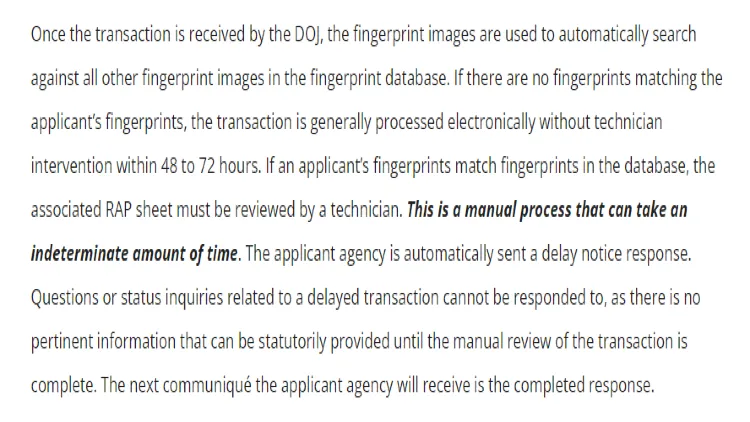
FBI fingerprint background checks can take up to 4 weeks for record requests submitted via mail. Online requests can typically be turned around in three to five business days.12
Overall, the state has enacted laws regulating California background check information, with new laws proposed; this guide helps those conducting background checks comply with both state and federal laws for screening tenants, potential employees, and more.
Frequently Asked Questions
When Do Driving Tickets or Moving Violations Go on Background Checks in California?
Driving tickets or motor vehicle violations go on background checks in California when they are misdemeanor or felony convictions or when the background check specifically looks at driving history as a necessary component to determining eligibility for a job.
Do Speeding Tickets Show Up on California Background Screening?
Speeding tickets typically do not show up on California background screening unless the person is speeding in excess of 100 miles per hour. At this point, the infraction becomes a criminal offense for which the person could face jail time.
Are Misdemeanors Revealed on Background Checks in California?
Misdemeanor convictions that are seven years old or less appear on California background reports. How long does a misdemeanor stay on your record in California? While they can stay on a record for life unless expunged, they will not show up on background checks if the conviction was more than seven years prior to the date of the report.
1 PACER Pricing: How fees work | PACER: Federal Court Records. (n.d.). PACER. Retrieved October 29, 2022, from <https://pacer.uscourts.gov/pacer-pricing-how-fees-work>
2 Access to Electronic Court Records. (n.d.). California Courts. Retrieved October 29, 2022, from <https://www.courts.ca.gov/42512.htm>
3 Sac Sheriff – Inmate Information. (n.d.). Sacramento County Sheriff. Retrieved October 31, 2022, from <https://www.sacsheriff.com/InmateInformation/>
4 LA Sheriff’s Office Inmate Search. (n.d.). Portal Home – Inmate Information Center. Retrieved October 29, 2022, from <https://app5.lasd.org/iic/Details>
5 California Corrections Parole Board. (n.d.). CDCR Public Inmate Locator Disclaimer. Retrieved October 29, 2022, from <https://inmatelocator.cdcr.ca.gov/Details.aspx?ID=AY4648>
6 Clements, S. (n.d.). California Background Check Laws. Nolo. Retrieved October 29, 2022, from <https://www.nolo.com/legal-encyclopedia/california-laws-employer-use-arrest-conviction-records.html>
7 San Diego County Sheriff’s Department. (n.d.). San Diego County Sheriff. Retrieved October 31, 2022, from <https://apps.sdsheriff.net/warrant/waar.aspx>
8 Fair Chance Act: Criminal History and Employment. (n.d.). California Department of Fair Employment and Housing. Retrieved October 29, 2022, from <https://calcivilrights.ca.gov/wp-content/uploads/sites/32/2019/08/FairChanceActFAQ_ENG.pdf>
9 Disqualifying Offenses. (n.d.). Disqualifying Penal Code Sections. Retrieved October 29, 2022, from <https://www.cdph.ca.gov/Programs/CHCQ/LCP/CDPH%20Document%20Library/DisqualifyingPenalCodeSections.pdf>
10 Fair Chance Act | CRD. (n.d.). California Department of Fair Employment and Housing. Retrieved October 29, 2022, from <https://calcivilrights.ca.gov/fair-chance-act/>
11 Fingerprint Background Checks | State of California – Department of Justice – Office of the Attorney General. (n.d.). California Department of Justice. Retrieved October 29, 2022, from <https://oag.ca.gov/fingerprints>
12 Rap Sheets (Identity History Summary Checks) — FBI. (n.d.). FBI. Retrieved October 29, 2022, from <https://www.fbi.gov/how-we-can-help-you/need-an-fbi-service-or-more-information/identity-history-summary-checks>

